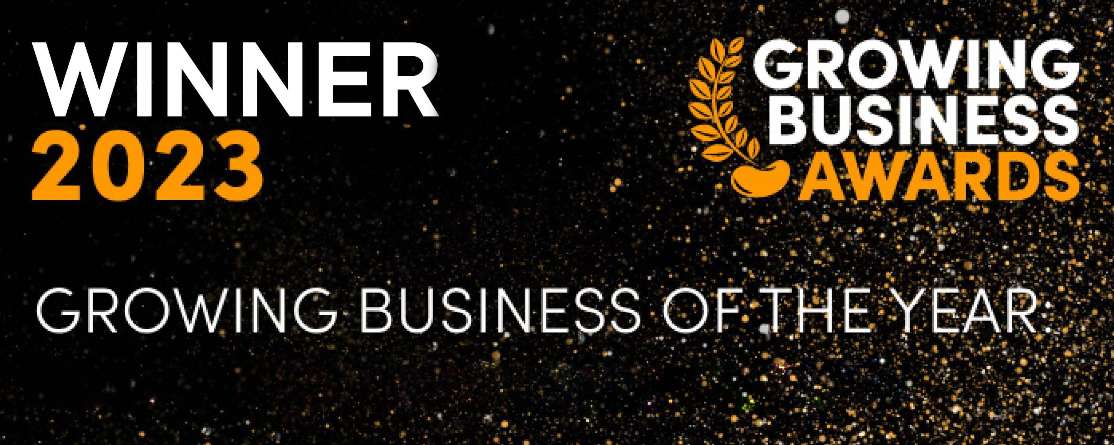Dragonfly AI is a predictive analytics platform designed to help you improve the quality and effectiveness of your creative across any format, channel and market.
AI Efficiency vs Human Empathy
Expert-led podcast discussing trending articles, and news in the AI and attention spaces.
.png?width=1920&height=1920&name=Intro_square%20(3).png)
Webcasts led by experts
AI Efficiency vs Human Empathy
.png?width=831&height=600&name=Mask%20group%20(2).png)
AI is taking over the world and it is slowly finding ways to integrate with the hospitality industry as well. The market size of smart hospitality in 2021 stood at $18.8 billion and is forecast to be $133.7 billion by 2031.
There are a variety of applications such as robot concierges such as in Henn na Hotel, chatbots, frictionless booking processes, automation, and more.
But where is the balance between efficiency and empathy? To discuss this, we have a marketing communications expert with over a decade of hospitality experience, Saakshi Verma, and customer success manager, Sophie Pain, who brings her expertise in leisure and AI to the table.
Q: AI is a pro in operational efficiency and that's something that hospitality is looking to do, but how do humans better understand that and respond to complex and unique customer needs compared to AI systems?
Sophie: I don't think it's a coincidence that the core values of large hospitality companies generally include a focus on their teams. For centuries, brands have understood that the better they take care of their teams, the bigger the impact on their customers. When it comes to understanding and reacting to those complex customer needs, I don't believe AI is quite there yet to fully comprehend all of the flexible nuances that make us human and then adapt accordingly. Whereas humans are much more naturally equipped to understand and respond to other human emotions. I think we can better read a customer's emotional state through those nonverbal cues and those complex needs do often have an emotional component that AI could easily overlook.
Saakshi: I feel like AI has definitely broken through a great technological, I wouldn't say barriers, like an advancement or evolution, but it's still at a very nascent stage. If you look at hospitality and you talk about hospitality, it's a service-led industry. It has always been about getting that service that interacts with the guests, and with the people who work at the hotel. I feel like it's coming at the right time where you can see the advancement at a very small stage and you can see it helping a lot of businesses but there's a long way to go.
Q: What are your predictions for the future role of AI and hospitality? How might this evolve and where do you see this merging to move forward together and keep that important empathy?
Saakshi: I feel the future is now. We can already see that at the back of a lot of hospitality chains that have integrated AI into their chatbots and understand user profiles. But then again, we always go back to the whole point of, how do you involve the intuitiveness or the empathy that a human being provides.
In terms of evolution, the end user is the target audience and there is also a massive generational difference that we can see. I think I was watching a Netflix documentary recently which said, the 90s was the biggest boom when it comes to tech, and that has been the last 20 or 30 years of our lives, and it wasn't the same before that.
If our audiences are going to be on their phones using an AI kind of technology or expect the hotel to understand their needs before they step into it, we'll have to be switched on.
It can't be just that one thing overall where AI takes over because there has to be harmony in the two concepts where, you know, first the guest is happy with the level of technology provided. Now we go to our hotels and we press a button and the drapes open up. That's a fun factor. But maybe 20 years later, it might be a technology that still gives that wow factor and there is still a human touch or some kind of empathy or creativity involved that makes them feel warm and welcome.
Sophie: I think I read somewhere that PWC has estimated that AI could add 15 trillion to the global economy and so it's going to touch hospitality in some way or another. We've already seen some awesome concepts. There's a hotel called Henn na in Japan, which is the robot hotel. That could become an industry within itself because people love to have those unique experiences when it comes to tech.
For a normal, everyday hospitality setting. I think when it comes to customer-facing AI, we're going to see in the short term, at least an enhancement in those existing processes. More virtual assistants and contactless check-in. It's going to take a really special company or hotel or probably more likely someone a bit more independent to leap into those more creative AI experiences, hopefully somewhere not too far down the line for us to see.
Q: Let’s consider the role of emotional intelligence in hospitality and marketing how it compares to AI capabilities, and what role AI can play in building those long-term relationships and loyalty with guests because loyalty is a massive aspect.
Saakshi: I think for AI to predict those bits about me as a person, it's very important that they have the data to run with it. If you're not sharing your data, I think our generation is still a bit cautious about where we're putting our information. It might not be possible for AI to give you that seamless experience that you probably had the first time because you did not give your details.
However, if you meet the executive chef, and he remembers you, he's going to welcome you back and give you that little extra dessert before you pay your bill and that's going to make the whole experience even sweeter.
Sophie: Where AI can come in there, I think, is it can provide a consistent response to, let's say, all those general queries that come in a virtual assistant style. And it's available 24 seven. It can address all those basic customer inquiries. It doesn't get tired. It doesn't have an emotional bias. And then that means that those teams in reception can have those great experiences with the customers in front of them.
Q: Brand memory, whether that's brand colors or how you felt or how you were treated. In what ways do you create environments for this to flourish and how might technology help now and in the future?
Saakshi: I feel like loyalty has already gone very it's very trend-friendly now. Loyalty is points-based, it's app-based, we've got our nectar cards, we've got our Tesco QR codes, so somewhere the tech already embedded that loyalty bit. However, I do think in terms of AI, I don't see it very far in the future that you're going to walk into a store and it's going to recognize you and your points are going to come in too. I see that happening maybe even in hospitality that it might be, you know, we might be able to recognize guests through facial recognition or bits like that. But then again, this is where we've got things like GDPR, we've got the massive data rule book that we have to be careful of.
Sophie: I don't think I'd mind if I walked into a store and it recognized my face and maybe half of my shopping cart was already full. But I know that that's probably not the right way to go because it could have implications.
What you said about loyalty programs and brands already offering personalized rewards and experiences that can help retain customers. Um, and keep the brand at the forefront of their minds too.
As part of the loyalty program, a massage might be offered to you over a drink in the bar because the brand knows that significantly more up your street and what you like to do to relax in your spare time. So hopefully we'll continue to see more of that than those positive outputs. I know another part of brand loyalty is people love to go online and write feedback, right? And there's nothing better than getting a little message back from the manager that's like professional and personalized.
Saakshi: In my experience, I can tell you that reputation management, at least in the last 10 years that I've been in the industry, it has been a massive, massive point for a marketing communications department. If not the marketing communications office, it would be the front office, if not the front office, it would be the general manager's office. But that feedback is super important.
Guests don't always choose to talk about it online. I think the first touch point is always the front office manager or the reception, where they will let them know.
AI might not be able to generate answers or solutions to such problems.
A fantastic discussion that brought AI into human-driven spaces in a considered and customer-centric way. It was great to hear from two sides on the value of efficiency and empathy, particularly around accessibility, preference, and governance.
The article that triggered the conversation can be found here.
Listen on Spotify here.
Subscribe here – we have another episode out in 2 weeks!


